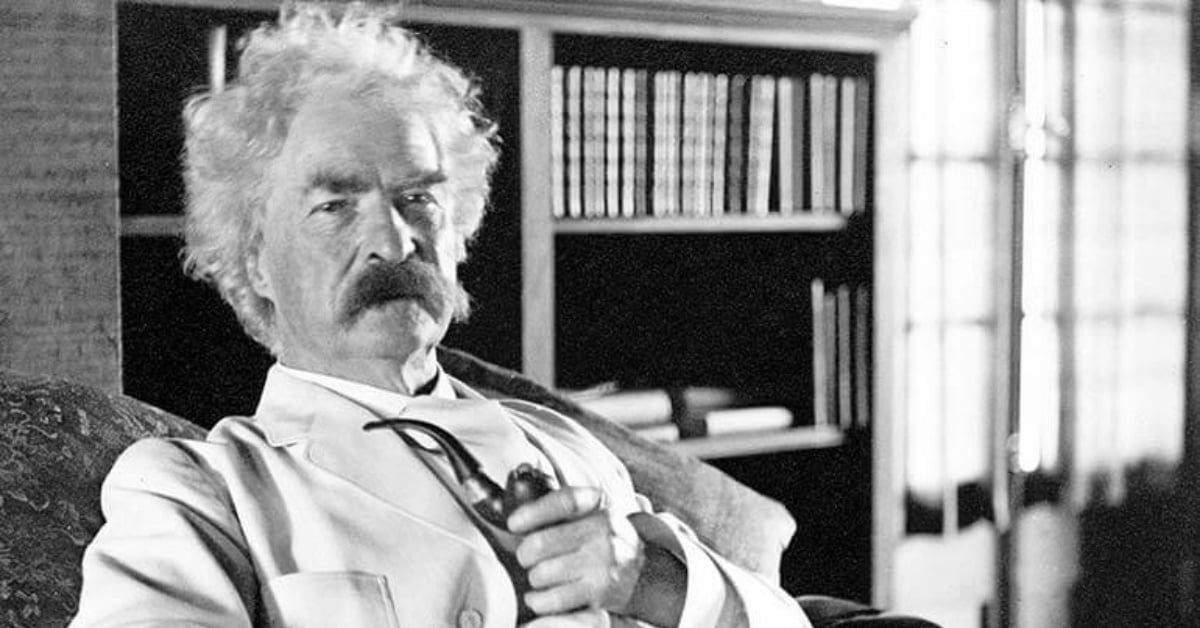The American writer is credited with one of the most famous phrases related to giving up a bad habit. We checked to see if he said that.
A witty saying that reflects the difficulty of dealing with addictions became widespread many years ago and continues to be popular today. An aphorism in which "hundreds" are often replaced by "thousands" and other numbers, Mark Twain is credited with resources such as "Kommersant", "Moscow 24", Rospotrebnadzor, biographical website about an American writer, magazine "Science and Life", as well as sites of various psychological dispensaries, hospitals And universities. This quote is also popular on West.
Moreover, his passion was not limited to any one type - the writer loved both cigars and smoking a pipe. Twain claimedthat he started smoking at the age of eight, starting with 100 cigarettes a month. Years will pass, and this dose will increase many times over. Among others his quotes: “Nutrition and sleep are the only things that should be allowed to interrupt a man’s enjoyment of his cigar” and “Too many cigars is to smoke two at once.”
It is also indisputable that Mark Twain tried to quit a bad habit. When in 1870, after the wedding, succumbing to the entreaties of his wife, the writer tried to quit smoking cigars, then suddenly discovered, which cannot fully work: “In three weeks I wrote six chapters. Then I gave up the struggle [with cigar smoking], resumed my three hundred cigars [a month], burned the miserable six chapters, and wrote the book in three months without worrying about difficulties. I usually smoke 15 cigars during five hours' work, and if my interest in the work reaches the highest level of enthusiasm, I smoke more. I smoke as hard as I can and don’t allow any intervals.”
In his book "Along the Equator" Twain writes about another attempt: “It worked more or less tolerably for a while. I promised myself that I would not quit, but I would smoke only one cigar a day. I put this cigar aside for a while before going to bed, so that, after smoking it, I would not be tormented by the desire for another one. Every day and all day I waited for the moment when I would light my cigar. Over time, I began to hunt for big cigars. They grew and grew in size, and within a month my evening cigar had grown to such proportions that it could be used instead of a cane! Then I decided that limiting myself to one cigar a day didn’t make sense.”
Also deserves special attention statement: “I quit smoking from time to time, once even for several months. But this was only for boasting, to destroy those critics who claimed that I had become a slave to my habits and could not break the shackles."
However, all these statements only vaguely resemble the famous phrase and do not contain the sarcastic zest for which it stands out. The reality is that there is no such quotation in any lifetime edition of Mark Twain’s works, or in his diaries or letters.
The first time a joke of this format was found in literature was in 1905 and has nothing to do with Mark Twain or smoking. It was used by the little-known writer Harris Dixon in his novel "Duke of Carelessness":
“Noel,” he said, “I thought you quit playing poker.”
The Duke smiled politely in response: “Yes, I quit over a thousand times, every time the game was interrupted. Damn, boy, it’s very easy to quit playing poker.”
In 1914, four years after Mark Twain's death, his friend Elizabeth Wallace quoted one of the letters allegedly sent to her by the writer. Twain’s statement here is not very similar to our phrase: “I was warned to quit smoking, which I did for two or three days. But I was too lonely, and I started smoking again - in a new way, four times a day instead of 40. This will have a good effect. In a bank account."
In 1932, the Norfolk and Western Magazine published joke, very reminiscent of the modern one: “Dispatcher S. W. Campbell claims to have quit smoking. Stuart says: "Quitting smoking is easy; I've quit at least a hundred times."
Then the witty remark, still without reference to Twain, migrated to the British magazine "Punch" and a number of other publications, and in 1938 - already with the mention of alcohol - included in radio monologue famous comedian William Claude Fields. It was this year that the first mentions of Mark Twain appeared in the press in connection with our quote. Moreover, we are not talking about biographical, but about medical publications, one of which, obviously, reprinted the aphorism from the other: "Journal of the American Medical Association" And "Mayo Clinic Bulletin" And only after this, references to Mark Twain in connection with the quote began to mushroom. Therefore, it can be said with a high degree of probability that someone attributed a joke that was already quite common at that time to Mark Twain, based on many of his statements on this topic. Twain himself did not say or write such things.
Incorrect quote attribution
Read on the topic:
If you find a spelling or grammatical error, please let us know by highlighting the error text and clicking Ctrl+Enter.






